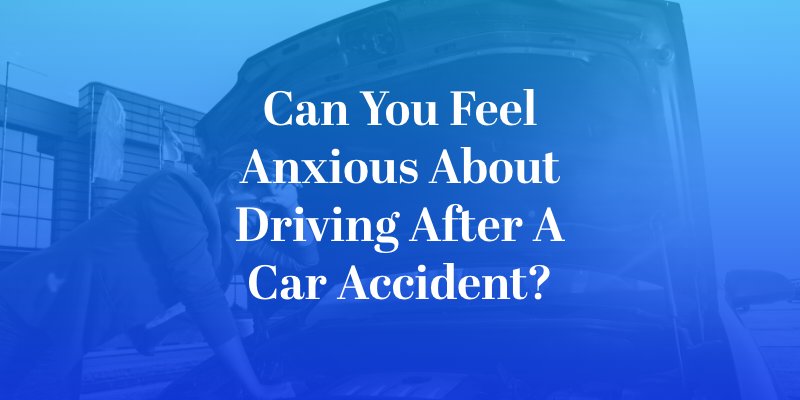
A car accident is a frightening and traumatic event that can have a sizable impact on your mental and emotional well-being. You may experience lingering anxiety from the crash, especially when it comes to being in or driving a motor vehicle. There are things you can do to help ease lasting anxiety about driving after being involved in a car accident. Make sure to contact a car accident lawyer in San Antonio for legal guidance after a car accident.
Car Accidents, Chronic Anxiety and Symptoms of PTSD
It is entirely normal to feel anxious about driving after being in a car crash. You’ve already seen the worst that can happen – and you don’t want to experience anything like it ever again. Even thinking about driving may cause flashbacks to the traumatic crash. This is a sign of post-traumatic stress disorder (PTSD): a normal and common response to a potentially life-threatening event.
Severe or chronic anxiety after a car accident can be a symptom of PTSD. Other symptoms include nightmares, feeling on edge, depression and avoidance of things that remind you of the crash, such as driving. PTSD or anxiety from a car accident can result in a phobia or fear of getting behind the wheel, which can lead to not driving altogether. Cases of post-accident driving anxiety can range from mild feelings of unease to full panic attacks.
How to Address and Overcome Anxiety Caused By a Car Accident
If you feel scared, intimidated or overwhelmed at the thought of driving again after being involved in a car accident, you are not alone. Help, resources and support are available for people in your situation. You can address post-accident driving anxiety with the following tips:
- Avoid suppressing your feelings. Acknowledge that your anxiety is a natural and valid response to being involved in a traumatic accident. Suppressing your driving anxiety can make it worse over time.
- Seek professional help. Talking to a counselor or therapist about what you’re feeling can help you process the emotions and discover healthy coping mechanisms, such as deep breathing exercises, relaxation techniques, meditation or journaling.
- Take small steps. You don’t have to get behind the wheel right away. Take gradual steps toward being able to comfortably drive again without inducing feelings of anxiety or panic. Sit in a parked car, for example, or start with short, familiar routes.
- Get support. Seek help from support groups, either virtually or in person, for a community support system that can help build you back up. You are not alone in the emotional aftermath that often follows a serious motor vehicle accident.
It is especially important to seek professional help from a psychiatrist or therapist if your driving anxiety interferes with your life, such as your ability to work or carry out daily activities. A therapist who specializes in trauma may be able to recommend anti-anxiety medications or other solutions.
Seeking Compensation for Post-Accident Anxiety
Car accident victims in Texas can be eligible for financial compensation for emotional distress as well as physical injuries and financial losses. The civil justice system in Texas allows an injured accident victim to seek damages for “pain and suffering,” which can include symptoms of PTSD and post-accident driving anxiety.
The person or party at fault for causing your automobile accident can be held responsible for the mental and emotional suffering you have endured. For assistance seeking fair compensation for all the ways a car accident has impacted your life, contact a San Antonio personal injury attorney at Hill Law Firm Accident & Injury Lawyers. We offer free case consultations.
